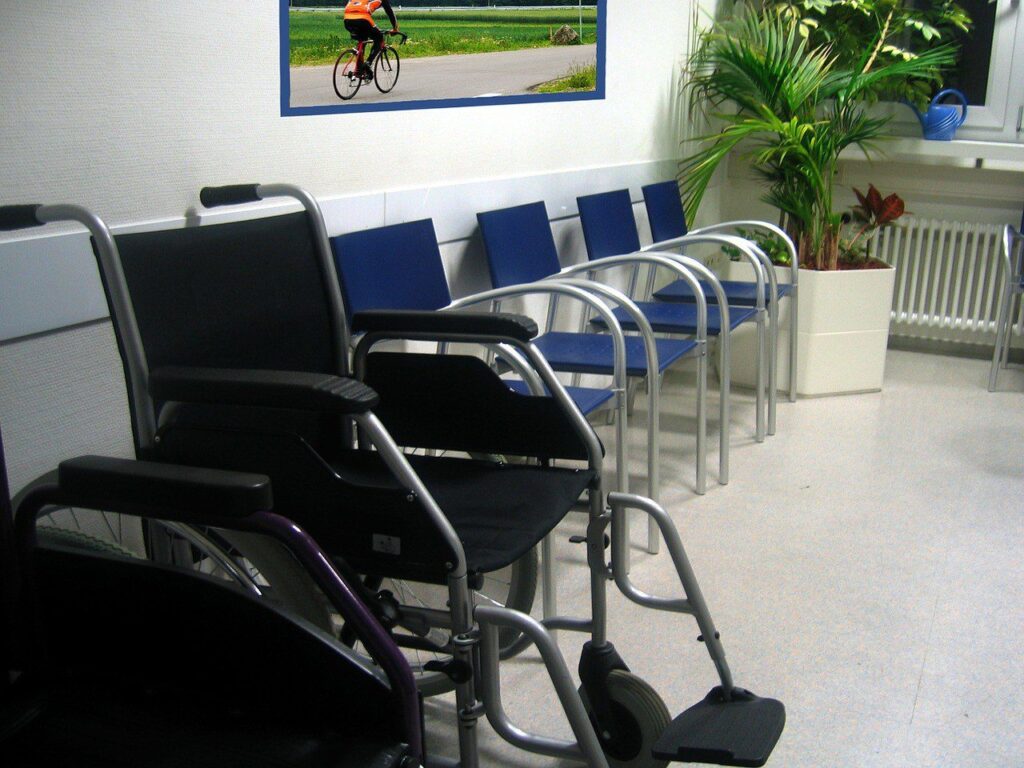
The healthcare industry is a pressure cooker right now – stuck between higher expectations from the government and the public and constant tech disruptions (or advances, depending on how you look at that). One of the best things to come out of this healthcare industry shake-up is that people in the industry are looking outside the industry for solutions. And from that search, people are finding a lot of ways modern sales and CRM strategies can help hospitals provide better care and make more money.
Think about it …
Having the best specialists and the latest medical tech devices doesn’t automatically make hospitals and medical centers more money. In fact, expensive big ticket items and doctors can lose money for healthcare providers – even if they sound good and seem impressive.
On the other hand, hospitals, outpatient centers, and medical offices of all kinds generally get a higher ROI from initiatives related to their customer relationship management (CRM). Why? Because generally speaking, the kinds of things that keep patients happy, keep them returning, and get them telling their friends about a place either have lower set-up costs, substantially increase foot traffic (and thus, revenues) – or both.
Since the focus in healthcare is shifting to managing patient relationships, it was only a matter of time before Salesforce, the CRM industry’s largest and most influential player, got involved in healthcare. There’s no denying that healthcare IT is an area with huge growth potential – and the savvy CEO of Salesforce Marc Benioff knows it. That’s why he set forth to create a version of Salesforce specifically for healthcare providers.
By combining advances in technology with basic CRM principles, healthcare providers can improve healthcare delivery, which in turn creates value and increases revenue. Using CRM tools and principles should help medical organizations:
- Connect the dots in a patient’s medical history
- Follow up with patients and track follow-up care better
- Communicate better between all interested parties, including other physicians, the patient, the patient’s family, and laboratories
- Automate parts of the process to run leaner and more effectively overall
- Ultimately improve health outcomes
Salesforce isn’t the only healthcare CRM tool out there. It wasn’t even the first. However, what Salesforce does differently for healthcare is bring together healthcare data from different sources. The lack of compatibility between technologies and systems has been a huge roadblock in the healthcare industry, slowing down progress. The cloud-based healthcare version of Salesforce aims to solve this problem and make healthcare seamless.
With great CRM tools like Salesforce available now, there are 6 ways modern sales and CRM strategies that can help hospitals provide better care and make more money.
Measure and track outcomes
What gets measured gets improved, so the saying goes. Salesforce lets sales teams track all their activity, so they can find the weak links in the sales process (or among individual reps in the team). In a similar way, the healthcare version of Salesforce tracks and spits out data about patients, so healthcare professionals can look for trends – both in individual patients and in community populations at large. For example, are a lot of people coming in with similar symptoms – and do those symptoms point to a possible health emergency in the community?
What about follow-ups? Are a lot of people having trouble remembering to keep their follow-up appointments? Are these appointments necessary? Or, could the follow-up be handled with a call from a nurse over the phone? Would reminder calls and texts help more people keep more appointments? The hospital or office can make that determination.
The point is that data is king in every industry right now. Healthcare is no different. Even the president is talking about what data can do for healthcare. CRM software can make measuring and tracking outcomes easier and more accurate.
Be consistent with follow-ups
One of the worst things that can happen in sales is forgetting to follow up with a hot lead. It’s as true for healthcare as it is for sales. There is a direct link between patient/doctor follow-up and being able to improve health outcomes, reduce mistakes, and reduce readmissions. CRM makes keeping track of follow-ups much easier and more consistent.
Before CRM healthcare tools and computerized record keeping, medical staff would simply go down the appointment book and call patients to remind them about their appointments. If someone wasn’t home and they didn’t have an answering machine, you might not get a hold of them for days or weeks. A patient could miss their appointment, and sometimes no one would hear from that person until they came back sick to the office or hospital.
Sounds like the dark ages, right? Now, everyone is more accessible thanks to cell phones, and it’s easier to get messages to patients. Healthcare providers can set reminders to follow up with patients about everything from lab results to medication to discharge instructions. And studies show that when patients understand their discharge instructions, hospital readmission rates are cut drastically. That’s a measurable standard that affects Medicare reimbursements.
Long story short – better follow-up leads to better care overall. Automating follow-up procedures can make the process easier and more consistent for everyone.
Communicate with your customers – and let them communicate with you
In sales, communicating at the right time with the right person is key. You want to be able to get a hold of decision makers. You want to know what their days are like and what their biggest fears are so you know how your product will help them and how to sell it to them. You also want to listen to them and get their feedback.
Healthcare is once again taking a play from the CRM playbook to communicate better with patients and their other providers to coordinate care. Using a computerized CRM program allows you to compile patient health information in one place. Then, you can use that same software to connect patients and providers with lab results, share discharge instructions, send follow-up appointment reminders, coordinate meds, track side effects, and share other medically necessary instructions and information.
Salesforce even has a mobile app patients can use to access their health information. In fact, with the rise in popularity of wearable technology and mobile apps, the healthcare industry is looking at mobile technology as a way to reduce miscommunication and reduce patient readmissions.
Thanks to CRM and mobile technology, patients and healthcare providers are communicating with each other like never before. Indicators point that this open flow of communication has a lot of potential to lead to better outcomes overall.
Know your customer
Knowing your customer is the first rule of sales and customer service. (After all, it wouldn’t make any sense to advertise baby clothes to childless or retired individuals or a home mortgage refinance to renters.) Salesforce for healthcare connects the many data points in a patient’s medical history, including data from electronic medical records (EMR) and lab results. The more information you have on a patient, the better you can choose the appropriate course of action for them when they need medical care.
What drug allergies or preferences do they have? Do they tolerate certain families of drugs better than others? Did they have a past surgery that could interfere with current treatments? What is their family medical history? Using sophisticated CRM data analysis and record keeping will help healthcare providers deliver more personalized healthcare. That creates raving fans who spread the word to friends and family. It can also help lead to fewer mistakes and better medical decisions overall.
Automate to save time
By streamlining basic functions, such as the admissions process and entering patient medical histories, healthcare staff can save hours every day, letting them focus more on the patients. Why enter the same information multiple times into multiple programs when you can consolidate everything into one system? What other systems can be automated? Pulling family medical history from EMR or data from previous visits can save patients lots of time and frustration. This kind of automation is particularly crucial in emergencies, when time is of the essence.
Results are all that matter
Salesforce is all about the results. If something isn’t working for a patient, be it an exercise program or a new round of meds, you can track it more consistently in a CRM program that includes patient feedback and good tools for follow-up. Just like sales managers like to track consumer behavior and the close rates of their sales team, doctors, nurses, and other medical staff can ultimately look at the data and decide if they like the results they’re getting. And knowing what’s working – and what’s not – is half the battle if you’re working for continuous improvement.
Results are also important to the marketing and community relations departments. By knowing customer satisfaction levels, hospital readmission rates, and other key statistics, they can use that information to create effective campaigns to market the healthcare facility to the community.
The takeaway
Healthcare can’t take patients for granted any more. Hospitals, doctors, and everyone else in healthcare have figured out that with costs rising and reimbursements shrinking from insurance and the government, the thing that can make or break them is – customer relations management.
By providing exceptional service and delivering better outcomes, healthcare facilities can boost patient satisfaction. And when you do that, you’ll get the return patients and word-of-mouth referrals your marketing and community relations departments are dreaming of.
Because they’ve been vetted and work across many industries, these modern sales and CRM strategies can help hospitals and all medical centers and offices provide better care – and make more money in the end.





